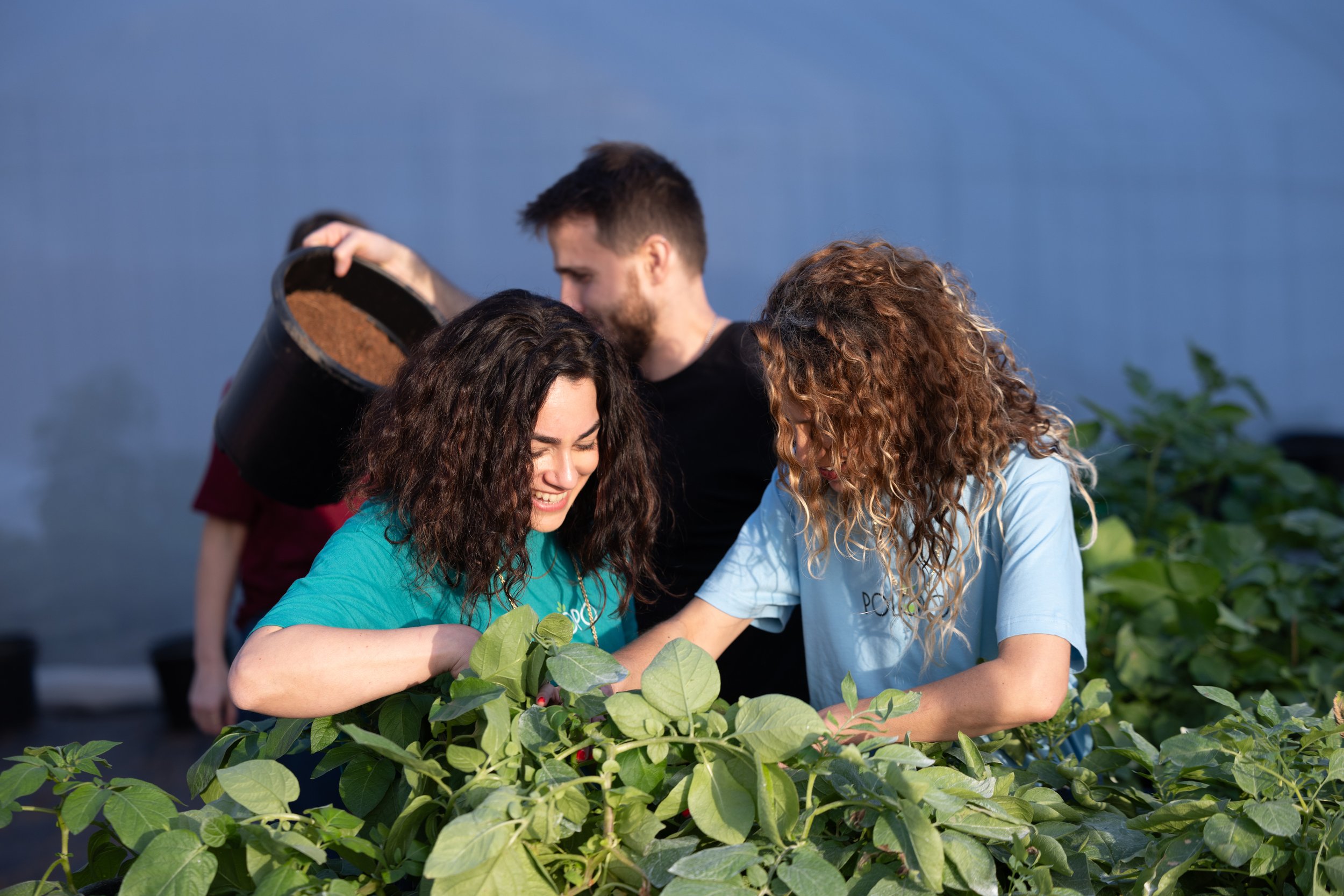🥚Schrödinger’s Egg - Here, but Not (from) Here 🥔
Maya and Raya have known each other for over 17 years, working together at the Volcani Center. Their shared passion for plant sciences is evident, and during our conversation, I was struck by their infectious enthusiasm for using plants—specifically potatoes—as advanced manufacturing facilities. 🥔 Their excitement convinced me that potatoes could indeed change the world. 🌍
But let me back up a little bit….
Earlier this month, I had the pleasure of chatting with Maya Sapir-Mir and Raya Liberman-Aloni, the co-founders of molecular farming startup PoLoPo. For those unfamiliar with Hebrew, "Po" means "here," while "Lo Po" means "not here." This name is perfect for a company that uses potatoes to produce chicken ovalbumin (here, but not originally from here), and the phonetic similarity to “potato” undeniably works. 🌱
At the start of our conversation, the immediate question that came to mind for me was, "why potatoes?" Molecular farming is often associated with tobacco plants due to their significant yield, well-annotated genome, and established agricultural infrastructure. Moving from big tobacco leaves to a tuber seemed like a big change. But as Raya pointed out “Leaves photosynthesize, and are therefore a poor target to harvest.” ☀️
Maya and Raya went on to explain the advantages of potatoes - “They provide extremely high yields and similar to tobacco plants have an established infrastructure for agriculture and downstream processing. Potatoes are also cheap, resilient, and capable of growing in nearly any climate.” 🌍In addition, potatoes are rich in polysaccharides like starch, potentially beneficial for downstream applications, especially in food - making downstream purification steps that much easier. 🍴
Founded in 2022, and funded by several VC’s (led by FoodLabs) PoLoPo is now growing ovalbumin-loaded potatoes in growth rooms in Israel. Ovalbumin is their first product—a protein used in a surprisingly large percentage of food products—but their vision extends much further. They plan to develop the potato as a manufacturing platform for dozens (eventually hundreds) of ingredients. Turning the humble potato into one of the worlds most advanced manufacturing facilities. 🏭
Over the last decade, we’ve see first precision fermentation and then cultured meat bring animal-based products to our plates. 🍽️Molecular farming seems poised to be the next key technology to achieve this feat, allowing for the production of animal-based proteins and products without the animal. 🐓
So, keep an eye out for proteins that are here ("Po") but not from here ("Lo Po"), because PoLoPo is developing something special. ✨ The entire molecular farming sector is primed for launch! 🚀
**PoLoPo are looking to partner with potato growers and those who work in the starch processing industry. If you know of anyone who would be a good fit, then please reach out to Maya directly 🙏


